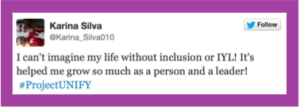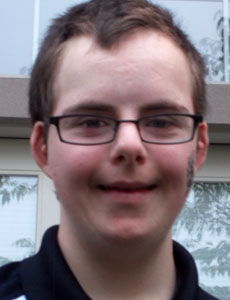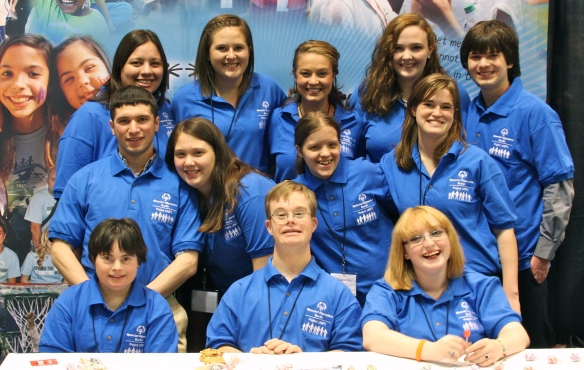Jamie Behymer, a co-chair of the Inclusive Youth Leadership Sub-Committee with the National YAC, shares her reflections about a recent #ProjectUNIFY Twitter Chat.
Phones in hand, Twitter App open, and ideas ready for sharing, the Inclusive Youth Leadership sub-committee met on Monday, January 13 to host the first-ever Special Olympics Project UNIFY® Twitter Chat!
A Few Thoughts About the Twitter Chat
“Before Twitter I was on a lonely road; the Twitter Chat is the intersection that brings all the different cars, different people, different ideas flowing together,” James Kweon, an Inclusive Youth Leadership sub-committee co-chair, said.
“This was something monumental,” Clement Coulston, the Inclusive Youth Leadership mentor, said. “Youth are the leaders of today and through collaboration and reflection, we were able to foster an idea of a new social norm, inclusion.”
 Members of the Inclusive Youth Leadership sub-committee educated participants about Inclusive Youth Leadership and the Guidebook that supports it’s development, but also learned how social media can impact continued collaboration. With the sub-committee tweeting out questions using #ProjectUNIFY, conversations were easily accessible for participants and continue to encourage discussions with people from around the world.
Members of the Inclusive Youth Leadership sub-committee educated participants about Inclusive Youth Leadership and the Guidebook that supports it’s development, but also learned how social media can impact continued collaboration. With the sub-committee tweeting out questions using #ProjectUNIFY, conversations were easily accessible for participants and continue to encourage discussions with people from around the world.

Twitter Chats are utilized to promote communication through stories, experiences, and resources, using 140-characters or less. “Youth” was the most prominent word throughout the evening, followed by “change” and “leader.” Whether it was an Adult Ally tweeting from Montana, or high school student in Washington, the Twitter Chat ignited ideas concerning the voice students’ have in society.
Karina Silva, an Inclusive Youth Leadership sub-committee member, closed the chat with:
Her tweet, like many others, showcased the power of inclusion and acceptance, and solidified the notion that everyone can be an agent of change.
With 48 contributors and 475 tweets, the inaugural Special Olympics Project UNIFY® Twitter Chat surpassed the expectations of the Inclusive Youth Leadership sub-committee, I would love to hear feedback from participants in the future. Click on the Storify below to review highlights from the chat and follow us @SOProjectUNIFY!












![photo[1]](https://projectunifyblog.wordpress.com/wp-content/uploads/2013/03/photo1.jpg?w=150&h=112)





